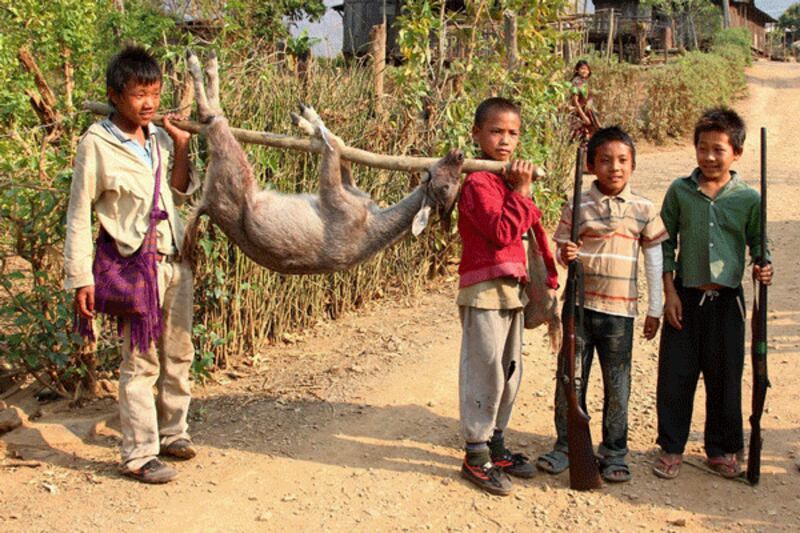CHIN STATE, Myanmar—Chin people who approach a foreign visitor on the streets of this isolated region want to tell you two things.
First, “We are very poor.”
This is not a complaint or an appeal for money. It’s simply a statement of fact. Chin State, an ethnic enclave of mostly Christians on Myanmar’s western border with India, is indeed the most impoverished region in the country, a mountainous, agrarian land with no rainfall for six months a year.
The second thing they want to tell you is how many of their children or relatives have left Chin State for better opportunities in Malaysia, India, and the West, especially the United States.
An estimated 50,000 Chin are in Malaysia, many of them awaiting permission to migrate as refugees to join some 30,000 Chin already in the United States. There are Chin pastors in Atlanta, students in upstate New York, families in Indiana and Iowa, sushi makers in Durango, Colorado.
“There are no jobs here,” Hedun, a township leader, said. “Even for educated people, there is nothing here… People can go to Malaysia and earn seven times what they earn here….”
“The population is decreasing year over year. We are losing our entire young generation. Eventually, we will lose our identity,” he said.
Hedun’s son is one of those who has abandoned hope here. He now lives in the United States.
Siang Mang, Hakha township project manager for the U.N. Development Project, told me that 150 young people from one village alone had left to seek better opportunities abroad.
Three of his six children are in the United States.
“They have more chance for a better life somewhere else,” he said.
Opportunities elsewhere

Until Myanmar’s democratic reforms began taking effect two years ago, many Chin were leaving to escape government oppression or persecution.
It was common then for the army to force Chin farmers to abandon their fields for weeks at a time to work, unpaid, on government projects, including the construction of pagodas, an affront to their Christianity.
Now the reason is economic, in an age when television and the internet show the young and able that there are better opportunities elsewhere.
Their options here include back-breaking work on government road projects—men make $3.50 a day and women $2.75—or farming, unless your family owns a business or has connections.
“Women don’t want to work in the fields after they finish school,” said Pu Zo Zam, chairman of the Chin National Party. “I don’t want my daughters working on the roads or in the fields, either.”
Almost everywhere I went in Chin State, village elders and leaders asked “What can we do?”
There is no dearth of ideas on how to improve the Chin economy and therefore the plight of the 500,000 Chin people: ecotourism, food processing plants, silkworm farming, cotton and weaving, garment factories, even exporting meat from local game.
The reality is that the region is hamstrung by its remoteness and lack of infrastructure.
There is no airport, for one, and the mostly dirt roads become quagmires during the five-month rainy season. It’s almost impossible to move anything to market. Plus, electricity is sporadic at best.
'Change the system'
President Thein Sein’s government in Naypyidaw, the capital, has a multitude of problems higher on its priority list than Chin State.
Thein Sein’s recent first visit here was of symbolic significance, but his pledge of $1.5 million in aid was seen as a pittance, an indication that the Chin must fight for whatever they can get.
To that end, Chin politicians are lobbying the government for an airport, road improvements and, most important, for changes in the constitution to give them and other ethnic minorities self rule, something they say they were promised as far back as 1947.
“We must change the system in Myanmar,” said Zing Cung, secretary-general of the Chin National Front (CNF). “We need a federal system so we can make economic change ourselves, for us, not for anyone else.”
Meantime, the CNF is waging a campaign to raise money from the Chin diaspora and to encourage emigrees to return home for a visit in order to see the problems and perhaps invest in projects that would improve the economy.
“We need people who are part of the ‘brain drain’ to come home and help us,” Zing Cung said. “They already send money back to their families, but we need ideas and investment, too.”
Tyler Chapman is a regular contributor to RFA.
